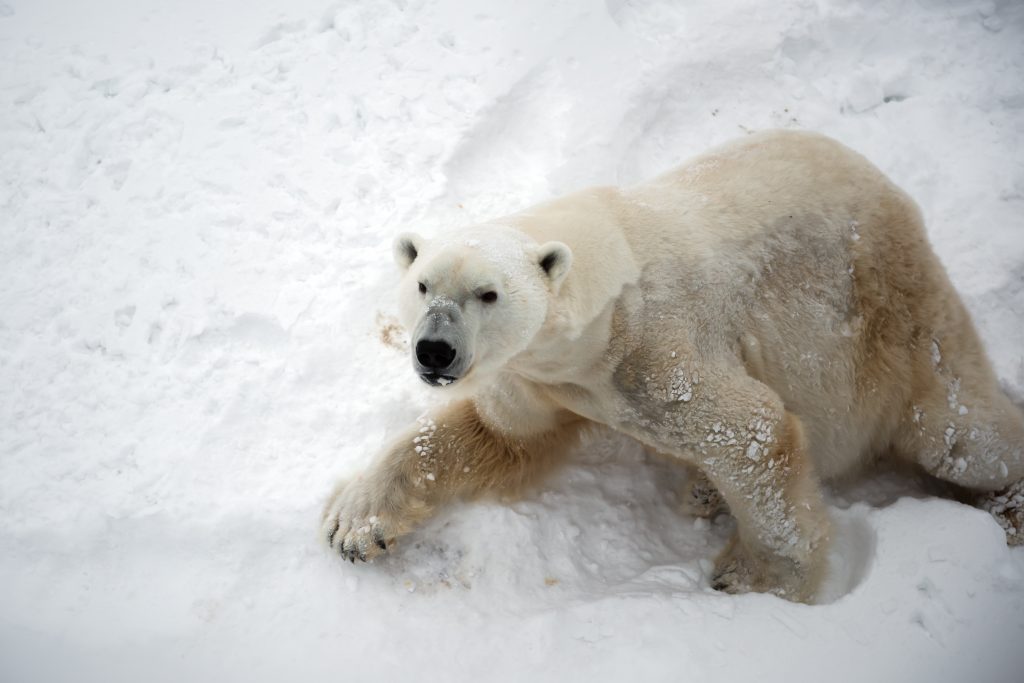Curious Words in Dutch 3: IJsberen Posted by Sten on Mar 18, 2019 in Culture, Dutch Language, Dutch Vocabulary
There are many strange words in a language. Words that are just not used much, words that are pronounced in a weird way… Just words that have something curious about them! And those are the ones we look at in this series. Today, we look at ijsberen.
Previous posts in this series:
Polar-bearing Around
You have a problem. Your boss told you to find a solution weeks ago, and he wants it by tomorrow. After endlessly procrastinating, you finally have a look – but you realize that it will be too much for you to do properly in the little time you have! What can you do? Any ways out?
You start pondering. You get up from your comfortable chair with lumbar support and walk towards the window of your office. You look outside, dreading the still snowy and cold landscapes. No solution yet. You walk back to your desk, looking up as if the answer is somewhere behind that awful popcorn ceiling. You go back to the window. And back to the desk… You are polar-bearing around!
The Dutch are quite good at turning objects into verbs – such as the Dutch word ijsbeer (polar bear). IJsberen (literally “to polar bear”, to pace up and down) refers to walking in a circle out of nervousness or boredom. The Dutch definition is rusteloos op en neer lopen (to pace up and down restlessly). Why do we drag ijsberen into this?
Well, dieren (animals) tend to wander around in gevangenschap (captivity), such as dierentuinen (zoos) due to a lack of space or ways to keep themselves busy. And this movement is most pronounced with ijsberen, which is why these beren (bears) have the privilege of their own werkwoord (verb).
Some examples:
Wat sta je nou te ijsberen? Twijfel toch niet zo aan jezelf! (What are you doing, pacing up and down? Stop doubting yourself so much!)
Ik ijsbeer soms als ik lang moet wachten (Sometimes I pace up and down if I have to wait for a long time).
Winterzwemmen
https://www.youtube.com/watch?v=oVG13381xjU
Another, much less common meaning of ijsberen is winterzwemmen (“winter swimming”), which – you guessed it – is swimming in the winter. In water that is below 5°C (41°F) or even below freezing! Of course, this can be dangerous. But if done properly, it can have all kinds of nice effects. Again, the namesake makes sense – polar bears swim in very cold water!
The best example of winterzwemmen is the nieuwjaarsduik. This annual event has thousands of participants all running into the cold (ocean) water to cool down and welcome the new year!
Do you “polar-bear around” a lot? Does your language have a specific word for this? Let me know in the comments below!

Build vocabulary, practice pronunciation, and more with Transparent Language Online. Available anytime, anywhere, on any device.






Comments:
Eileen:
Great for. Mug Rug
Thanks